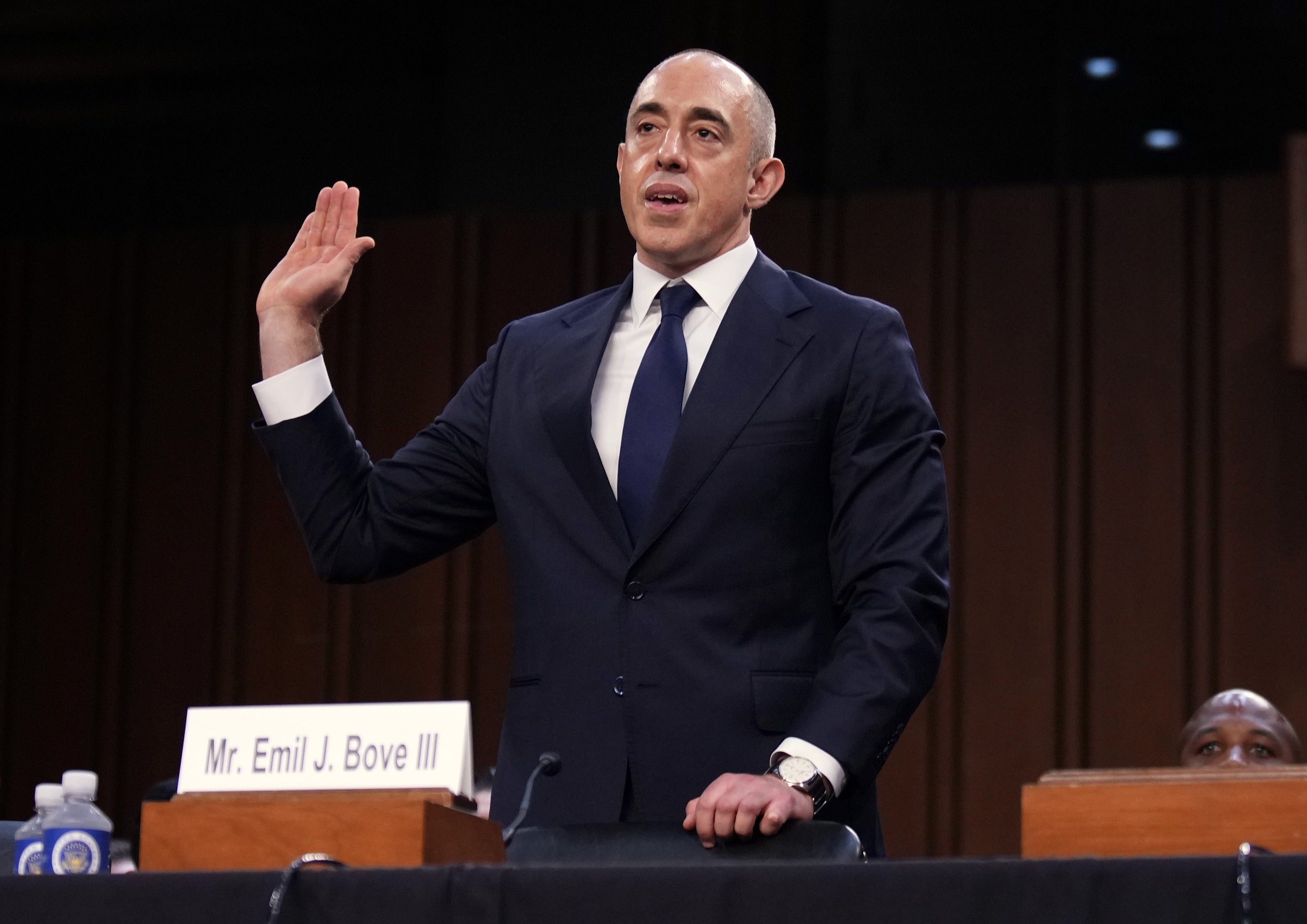Emails and text messages from a Department of Justice whistleblower to members of Congress reveal how top Trump administration officials and government lawyers shifted gears to keep Kilmar Abrego Garcia in a Salvadoran prison despite admitting he was there in error.
Erez Reuveni, a 15-year veteran of the Justice Department who was working in the Office of Immigration Litigation, was closely involved with several high-profile immigration cases in the first months of Donald Trump’s presidency when he was fired in April.
He supplied members of the Senate Judiciary Committee with a massive trove of internal messages showing the lengths the administration was taking to label Abrego Garcia a member of MS-13 as they tried to figure out if they were violating court orders by keeping him in El Salvador.
But before the case exploded into a national story at the center of the president’s anti-immigration agenda, administration officials spent several days discussing the feasibility of returning Abrego Garcia or ensuring that he would be protected from the gang violence he fled as a teenager.
The messages also revealed simmering tensions between Justice Department attorneys who worked the cases in court and lawyers for Homeland Security advancing the administration’s agenda, regardless of legal risks.
Abrego Garcia was deported to El Salvador and imprisoned inside the notorious Terrorism Confinement Center on March 15.
On March 27, in response to a lawsuit seeking his return, Homeland Security’s general counsel Joseph Mazzarra told officials to “get some evidence that El Sal commits to protecting him” from imprisoned members of the Barrio 18 gang while government lawyers worked to reverse an immigration judge’s order that prevented his removal from the country.
“I’m with Erez, we want to make sure everyone knows this gentleman is alright if it takes time to get El Sal to get him back,” he wrote, according to emails provided to the committee.
An official with the State Department replied, saying they “agree he should be brought back to the U.S. if El Sal will release him back to us, and we should take steps to ensure his safety in the meantime.”
Officials then pressed for evidence of his alleged involvement with MS-13 to share with Salvadoran officials, but the State Department said ICE’s reports — based on statements from a confidential police informant in Maryland years earlier — offered “very little.”
On March 31, the same dayThe Atlantic published the first account of the government’s “administrative error” that landed the wrongly deported immigrant back in El Salvador, Homeland Security general counsel James Percival asked whether officials could file a sworn statement in court documents saying that “this guy is a leader of MS-13.”
Later that day, an ICE official presented a draft statement to justify Abrego Garcia’s continued detention by accusing him of being a “verified member” of MS-13.
“I have not found anything indicating ‘leader,’ but I’ll keep looking,” the official wrote.
ICE also agreed that his removal was an “administrative oversight.”

In a follow-up email, Reuveni laid out potential “consequences” for the administration if it failed to resolve Abrego Garcia’s case without court intervention.
“I cannot think of any basis to take the position that we can ignore such an order” for his return, and his office would not support such an argument, he said.
The administration also risks “making very bad law” through the courts that “jeopardizes many far more important initiatives of the current administration over one person,” Reuveni added.
“We risk setting the precedent for the notion that El Sal is a contractor for DHS on detention issues, and that courts in the U.S. therefore have habeas jurisdiction to order peoples’ returns or take other measures,” he said. “One that domino falls, we’ll see dozens of habeas cases.”
On April 2, a State Department official asked whether the Justice Department and Homeland Security had “coalesced” around a strategy for Abrego Garcia’s return.
“Or is the strategy to argue that we can’t do anything despite the admitted error because he’s in another country’s custody?” the official asked.
Reuveni replied that he had yet to receive “clarity” on the issue.
After spending several weeks battling court orders from federal judges and the Supreme Court to “facilitate” his return, the administration abruptly returned Abrego Garcia in June to face federal criminal charges alleging his role in a smuggling operation.

Reuveni, a career attorney at the Justice Department, had told the judge overseeing Abrego Garcia’s case that the administration had mistakenly deported him — prompting his bosses to place him on administrative leave before firing him.
Last month, he submitted a 27-page whistleblower letter to the Senate Judiciary Committee claiming that associate deputy Attorney General Emil Bove had prepared to defy court orders that imperiled Trump’s mass deportation agenda. According to Reuveni, Bove told colleagues that they might have to consider telling the courts “f*** you.”
Emails and text messages provided to the committee appeared to corroborate Reuveni’s claims, which Bove denied in recent testimony.
Bove, a former Trump criminal defense attorney who is now a nominee for a seat on a federal appeals court, said he “never advised a Department of Justice attorney to violate a court order.”
He said he does not “recall” whether he said “f*** you” when discussing how to respond court orders.

A bulk of the messages provided to the committee show discussions surrounding the president’s March 15 decision to invoke the Alien Enemies Act and deport dozens of alleged Venezuelan gang members to El Salvador without a court hearing before their removal.
Washington, D.C. Judge James Boasberg had ordered the administration to stop the in-progress removals and turn the planes around if they had not already landed.
After Boasberg’s court orders, Reuveni sent a text message to an unidentified colleague referring back to Bove’s alleged comment.
“Guess we are going to say ‘f*** you’ to the court. Super,” he wrote.
“Well, Pamela Jo Bondi is,” said the colleague, referring to the attorney general. “Not you.”
Reuveni then repeatedly relayed to colleagues that the immigrants covered by the judge’s order should not be handed over to El Salvador authorities.
In another message, Yaakov Roth, the acting head of Justice Department's Civil Division, told Reuveni that the administration was acting on Bove’s advice, claiming their removal to El Salvador is “permissible under the law and the court’s order.”
Boasberg has repeatedly rejected that interpretation and has suggested holding contempt proceedings to determine how, exactly, the decisions were made to defy him.
The Independent has requested comment from the Justice Department, Homeland Security, ICE and the State Department.







